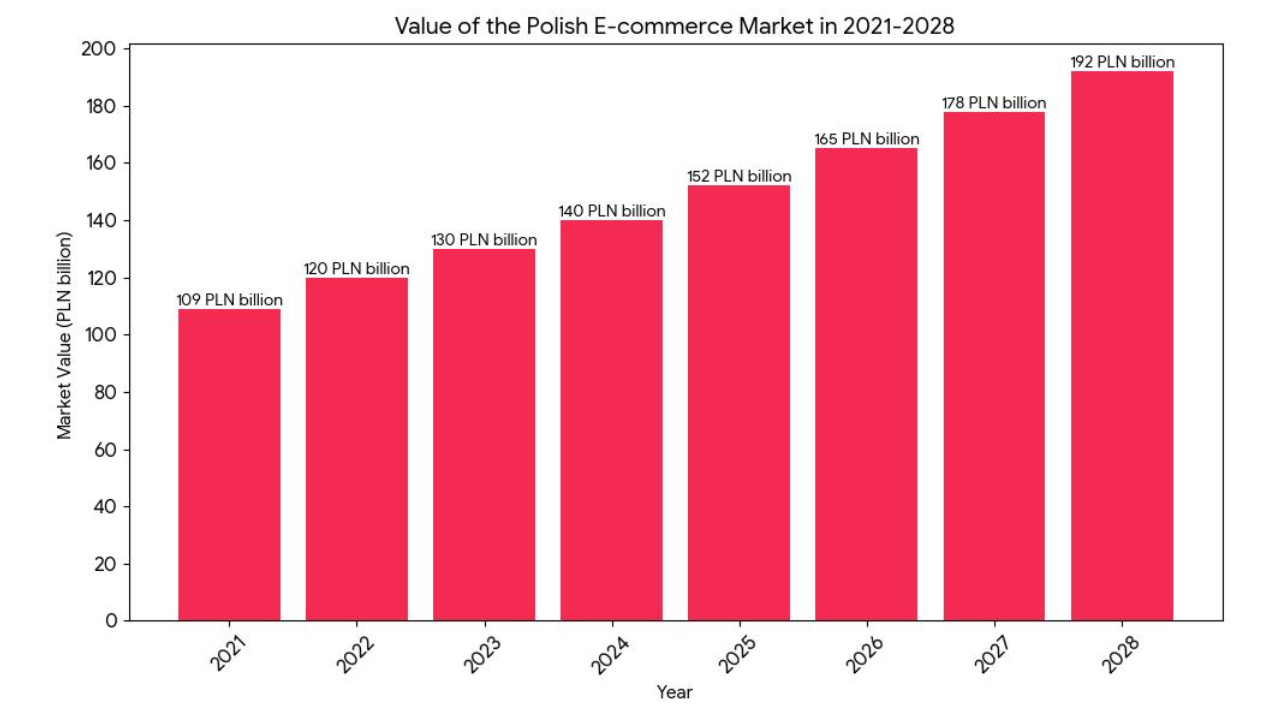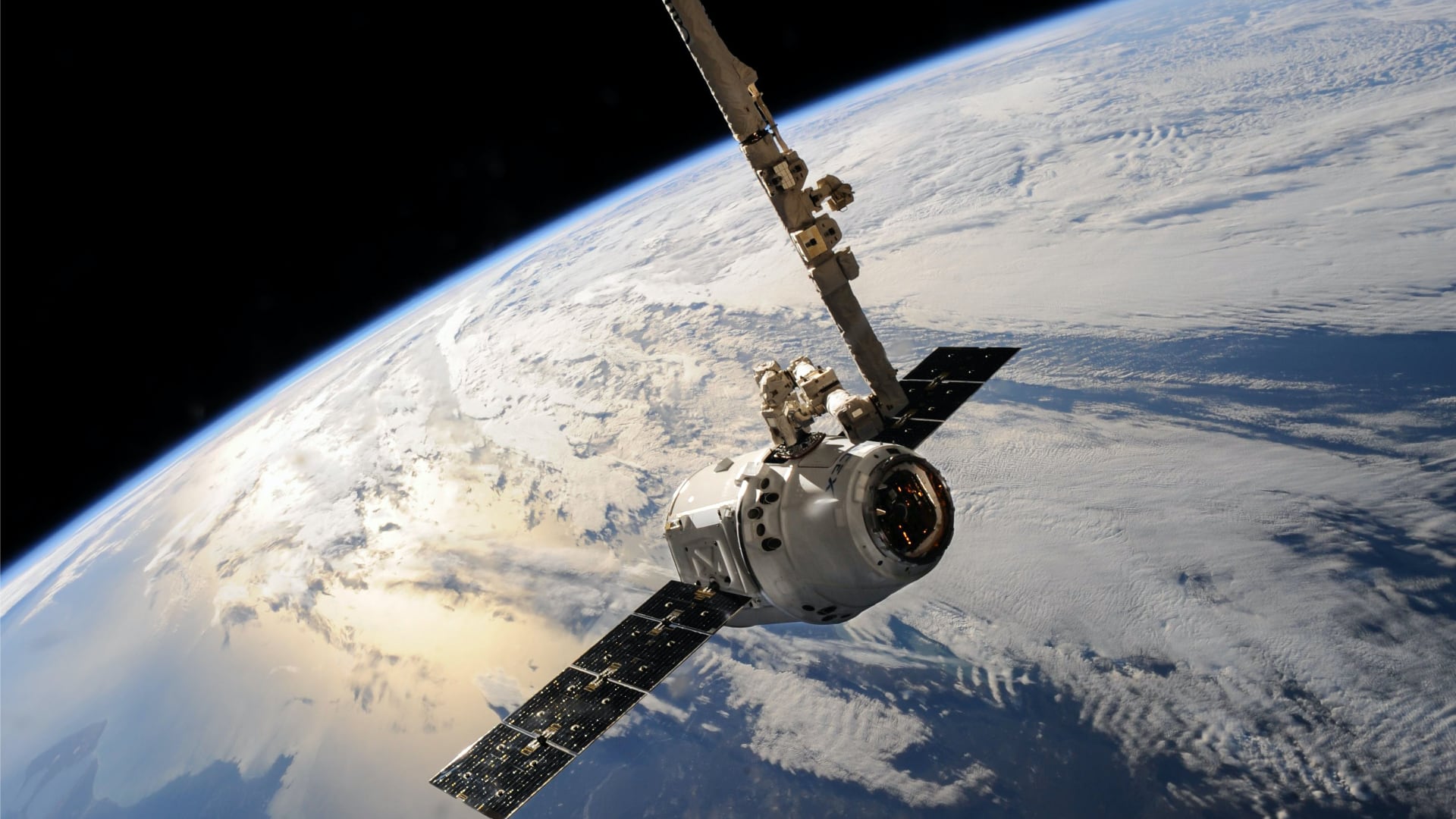The end of the gold rush that drove Polish e-commerce during the pandemic era is now a reality. We are entering a new, much more challenging era – the era of strategists.
Forecasts indicating that the market will reach £192 billion by 2028 are no longer a promise of easy profits for everyone, but rather a prize pool for the fittest players. The strategic game of profitability, loyalty and technological superiority begins.
Demanding and impatient: a new portrait of the Polish e-consumer
The driving force and ultimate judge in the market is the consumer himself. Its evolution dictates the conditions of the game. Online shopping has become a mass phenomenon in Poland – nearly 80% of Internet users do it regularly, which signals a saturation of the market.
Acquiring a completely new customer is now more difficult and expensive than ever. Therefore, the war is shifting from the acquisition front to the battlefield of retaining and increasing the value of the basket of existing buyers.
Poles’ virtual shopping baskets are still dominated by fashion, electronics and products from the health and beauty category. However, the true measure of the maturity of the market is the dynamic growth of the e-grocery segment.
We are increasingly willing to entrust online platforms to carry out our daily grocery shopping, reflecting a growing trust and perception of e-commerce as a fundamental utility.
The Polish consumer is not only experienced, but also impatient. He expects a shopping process that is seamless, instant and convenient. This need for convenience has shaped two pillars of Polish e-commerce that have become absolute industry standards: BLIK payments and parcel machine delivery.
BLIK, used by around 70 per cent of online shoppers, and parcel machines, chosen by nearly 85 per cent of shoppers, are today’s market ‘must-haves’. Any player who does not offer these options is already putting himself in a losing position at the start.
This ‘convenience infrastructure’ levels the playing field in a sense, forcing the giants to compete not only on logistics, but above all on price, quality of service and user experience.
Arena of titans: Allegro’s stronghold vs. the global offensive
The Polish e-commerce scene is a battlefield dominated by the fortified national hegemon, Allegro. With a market share estimated at around 35%, the company is no longer just a trading platform, but a complex ecosystem designed to keep both buyers and sellers with it.
The pillars of this defensive strategy are the Allegro Smart! loyalty programme, which offers free delivery, and the Allegro Pay deferred payment system. For sellers, Allegro is building an ever-widening range of fulfillment services, creating an environment that is difficult and unprofitable to abandon.
However, Allegro ‘s stronghold is under constant pressure from global contenders, each employing a different strategy. Amazon is pursuing a ‘slow cook the frog’ strategy in Poland.
Its debut did not cause an earthquake, but the US giant has been patiently building its position around the Prime ecosystem, combining free delivery with access to streaming services. Its strength is its global scale and almost infinite range.
From a completely different angle, platforms such as Temu and Shein are attacking. They are not trying to become a ‘better Allegro’. They represent a disruptive force, based on a social commerce model and ultra-low prices. They are creating a new market for low-cost, impulse purchases, where the very process of browsing the offers becomes a form of entertainment.
The war for Polish e-commerce is therefore not being fought on a single front. We observe a fragmentation of the market according to the customer’s ‘shopping mission’. On Allegro he enters for a specific, planned product, expecting trust and speed. On Amazon – in search of a niche product.
On Temu – for entertainment and to catch a bargain. The biggest threat to the leader is therefore not one powerful rival, but the dispersion of consumer attention and budgets between many specialised players.
The technological arms race: AI and automation
In an environment where prices and product ranges can be easily copied, technology is becoming the ultimate battleground. Investment in artificial intelligence (AI) and automation is no longer an option – it has become a survival imperative.
AI is revolutionising the way we interact with customers, enabling hyper-personalisation on an unprecedented scale. We are talking about dynamically generated homepages that show different products to each user, or predictive marketing, offering a product to a customer before he or she starts looking for it.
Equally important is the role of intelligent chatbots, capable of solving complex problems and offering 24/7 support.
At the same time, consumer expectations of same- or next-day delivery are making logistics the backbone of e-commerce. Operational agility is impossible without deep automation.
In modern logistics centres, fleets of autonomous robots sort and prepare goods for shipment, while advanced algorithms optimise couriers’ routes in real time.
The common denominator of these technologies is data – the new currency of e-commerce. The ability to collect, integrate and analyse information from dozens of different sources gives giants such as Allegro and Amazon a huge advantage. This creates a deep technology divide that will drive further market consolidation.
Who will win the war for the Polish customer?
We have entered an era in which victory will not belong to the biggest or cheapest company, but to the smartest one. The future of Polish e-commerce depends on mastering three key areas:
- A deep understanding of the customer: Moving from segmentation to individualisation and understanding the context of each ‘buying mission’.
- Operational excellence: The ability to deliver on the promise of immediate delivery profitably.
- Intelligent integration of technology: Using data and AI as the central nervous system of the entire organisation.
The market has matured and the rules of the game have become mercilessly clear. A chess game with the highest stakes is about to begin, in which only the best strategists will survive.












